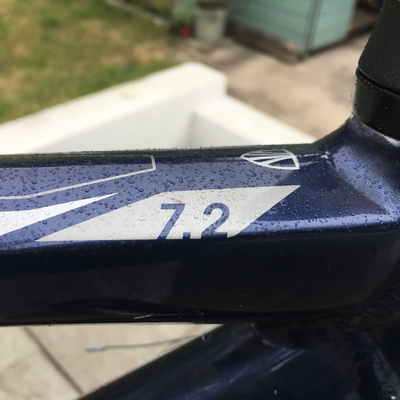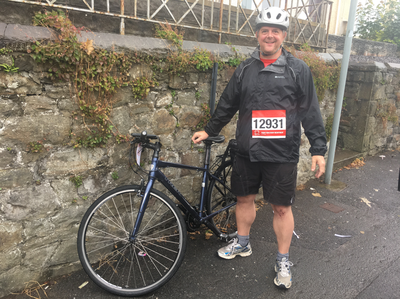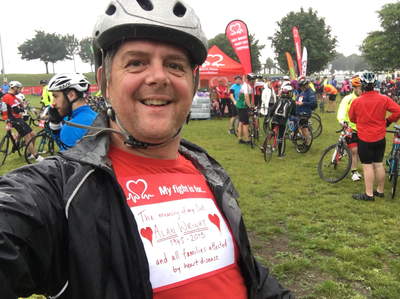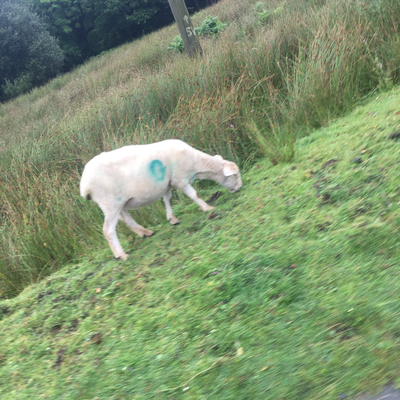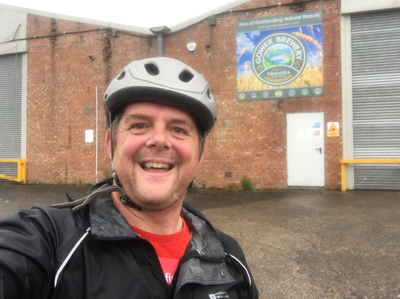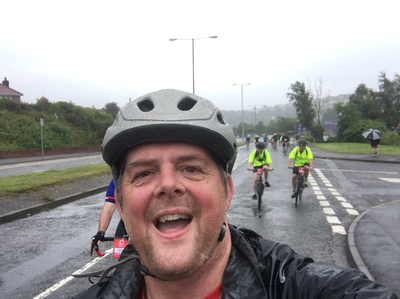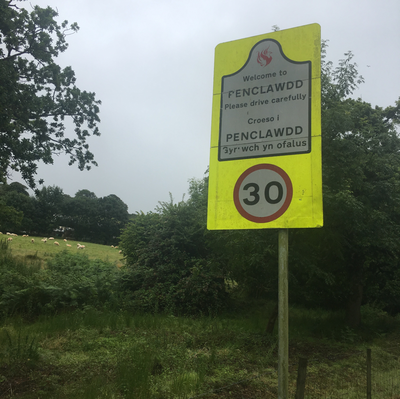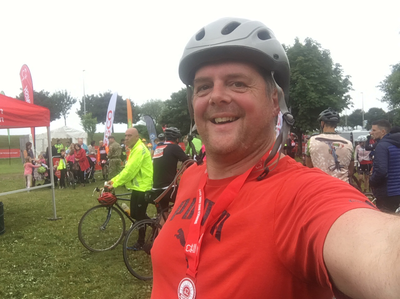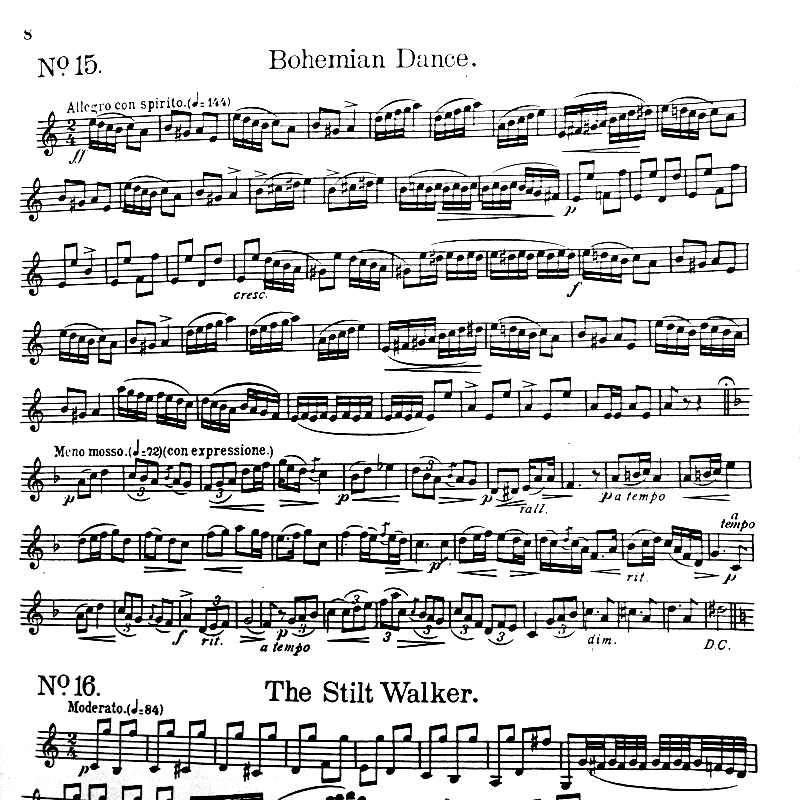|
On Sunday 23rd July 2017 I took part in The Swansea BIke RIde for the British Heart Foundation, travelling 28.6 miles, (it was scheduled for 28, but I had to take a picture of the Gower Brewery). Riding in memory of my late father Alan Wright, it was a dank, drizzly day but over 13500 cyclists turned out to raise money for the BHF. There were 3 routes, 12, 28 and 46 miles. I took the 28 mile option and it proved right. Not too heavy for a fair weather cyclist to tackle. The route took us through Pen-clawdd, Upper Killay past the glamorous Swansea Airport and back down into Swansea. Only a few hills to scale!! I raised over £700 for the British Heart Foundation, of which I am very proud.
Later this month I am taking part in a Brass Day at Impington Village College, Cambridge. One of the most important things I'll be discussing is the art of the breath. Breathing in, and more importantly, out. The simple act of breathing out before we breathe in has several beneficial effects. Firstly it focuses the mind on what we are about to do i.e. play something. Secondly, and more importantly, the act of breathing out acts as a tension release. Try it now. Make a sigh. Then breathe in. You should find that you can take a more relaxed, deeper breath. When one is stressed, or struggling with something, the general advice is to 'relax and take a deep breath'. Hmm. Just try that now, take a deep breath. The 'relaxing' part of a deep breath is in the exhale, when any tension that has accrued is released. When related to playing a brass instrument it can help to centre our physical and mental states when we are in performance mode, and help to bring our heart rate down. Which can only be beneficial when we are in stress inducing situations, a competition for instance. 'The Breathing Gym' is a book by two American tubists, Sam Pilafian and Patrick Sheridan. It is a fantastic resource and their related video takes the player through various breathing exercises designed to increase capacity on the one hand and also improve on the efficiency of the exhale. The short video on YouTube (below) can be used individually, or before a band rehearsal. It really is a great video, and the routines they use are practical and relatively short, and so can be done at the start of a practise session without eating up too much time. Good breathing becomes a habit and it can only be useful to practise it, so take 5 minutes a day to breathe. There are many apps available these days that promote mindfulness and meditation. These apps utilise focussing on the breath to calm the mind and get one into a receptive state. The Apple Watch has an app called 'Breathe' which sets a rate of 7 in and out breaths per minute. There are many more resources available, so breathe out, then breathe in and start your journey to better playing. 'We are built to conquer environment, solve problems, achieve goals, and we find no real satisfaction or happiness in life without obstacles to conquer and goals to achieve'
Maxwell Maltz As term time is nearly upon us once more, it's time to start thinking about what is to be achieved during this year. What do I want to improve? How am I going to improve? Where do I want to be playing next year? Here is a very interesting article relating to goal setting in business that can be related to us as brass players. It is quite a long piece, but is well worth sticking with to the end. The article is called Master The Art Of Setting Goals in 4 steps. It deals with making the goals realistic and not unobtainable. For instance if there is an area of your playing that needs improving, the goal of improving that element isn't necessarily enough. There should be a wider reason for improving that particular element. Read on..... http://www.success.com/article/master-the-art-of-setting-goals-in-4-steps Here is an interesting article on breathing for the high register from Roger Ingram, former lead player for Harry Connick Jr amongst others.
https://rogeringram.wordpress.com/2015/04/25/do-you-become-light-headed-when-playing-in-the-upper-register/ What's the similarity between an Astronaut and a Lead Player? In space, no-one can hear you scream!25/4/2015 I'm currently reading Cmdr Chris Hadfield's 'An Astronaut's Guide To Life On Earth' which details his space adventures, and the intense preparations for those adventures. How does this fit in with a blog about trumpeting? Well the thing is, it's all in the preparation. The old adage goes 'Fail to prepare, prepare to fail', but to Hadfield and his colleagues, with billions of dollars of United States Military hardware in their charge, failure simply isn't an option. As musicians, we're in the fortunate position where sometimes, we can cut ourselves some slack when things go wrong, which lets face it they do. But, as the astronauts prep show us, meticulous attention to the smallest details is essential for success. Sweat the small stuff.
Life in an opera orchestra is great. You get to hear great music from the masters, and great singing. At Welsh National Opera (WNO) where I work, we are essentially a touring company taking opera productions around the UK and occasionally abroad. When we are in a season, we will generally be presenting 3 operas comprising of 2 performance each of 2 of the operas, and 1 of the other. This season for instance we are doing a show called 'Chorus' which does what it says on the tin, 'The Magic Flute' and Hansel and Gretel. The only problem is that one is playing the same notes for over 3 months, from the beginning of the rehearsal period to the end of the tour. In the show 'Chorus' we are required to play a multitude of different styles from the Hallelujah Chorus, to 'Make Our Garden Grow' from Bernstein's Candide, via Verdi, Shostakovich, Britten and Weill to name but a few. As you can see from the photo however, sometimes we are not required for a great deal of time within an opera (Magic Flute in this case)! 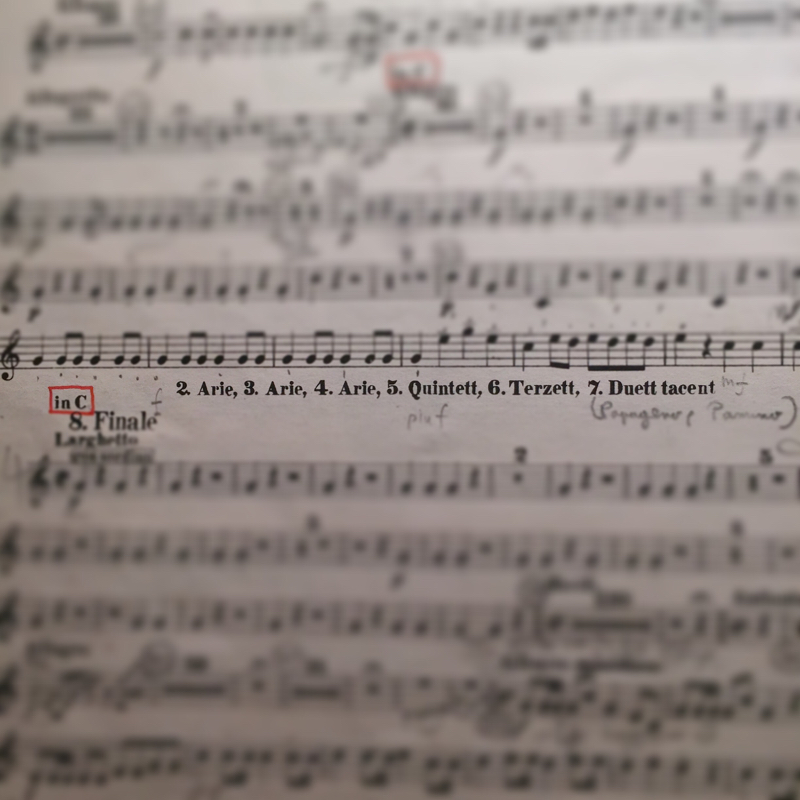 Magic Flute (Act 1 Tacets) Magic Flute (Act 1 Tacets) With my job at WNO, this pattern is repeated in the Autumn and Spring seasons. Seasons vary, and some are busier that others, but the question arises of how to keep ones playing in good condition? I make a 'Touring Pack' that I take with me on tour, which contains material from various different sources in a clear plastic display book. There is a collection of the usual suspects including Arban, Schlossberg, Clarke technical studies etc.I have also included various studies (Charlier, Bitsch, and some little gems from The Soloist's Companion, see photo). It is important to continue to find new and interesting studies to play, so that one doesn't get locked into just playing technical exercises. No one wants to listen to those!!
Lip flexibilities and other such exercises keep the focus of the embouchure, and flow studies (Chicowicz VC1, and Clarke No.1 chromatics) keep a check on the flow of the air. It is important for students of the trumpet to have a varied practise routine too. Change from the Clarke tech studies to Vizzutti, or Gekker. Alongside Charlier and Arban studies, play something that will stretch you in a tonality sense. The Vizzutti blue book, or the Thomas Stevens 'Contemporary Interval Studies' are excellent for these. There is also the trusty 'Red Hymn Book'. These simple vocalise studies are invaluable short exercises to extend the beauty of our sound, phrasing and breathing, endurance and range, They are good for our spiritual wellbeing! Just like practise!! DW 04.03.15 A fascinating interview with Malcolm McNab by Michael Davis at HipBone music. Hipbone's YouTube channel contains interviews with lots of LA's top brass players. Malcom McNab has appeared on over 2000 film soundtracks including some of Hollywood's biggest blockbusters. The subject of this post is lead pipe buzzing. This is a technique I've recently returned to, and feel it has benefitted my sound, and airflow massively. This video from Greg Spence's 'Mystery To Mastery' series explains the concepts very concisely, and what the effects are on one's embouchure and sound. Click on the photo to see Greg's YouTube page for more great video lessons and tips. With the beginning of term at music colleges and universities just around the corner, end of year exams will be looming large in the next few weeks. Here is a short presentation by Allen Vizzutti on the subject of 'Performance Anxiety'. This will almost certainly have affected everyone who plays an instrument at some time in their life, and can affect people in different ways. From feeling a 'little nervous', to being physically sick before going on stage, there are ways and means of controlling how we deal with the 'butterflies'. Good luck in your exams, or whatever performance you are giving. That's the point. You are giving something to the audience, who on the whole won't be there to judge you (well, maybe apart from the examiners!!) We take breathing for granted in our everyday lives, it is pre-programmed in us in the womb. However in everyday life, we only use a small percentage of our lung capacity. Athletes use about 60% of their capacity, but as trumpet players, we use a far greater percentage, 85-90% of our total capacity. There are plenty of opinions on respiration for brass players, and at the moment, the internet is a fantastic resource to access related material. But if we look outside the sometimes insular world of the brass player, there are thousands of hours of footage on YouTube of different disciplines of martial arts, yoga, pilates etc. Lots of these place emphasis on good breathing and an awareness of posture and the body. The video clip below contains a set of Qi Gong (Chi Gong) exercises that stimulate the body's breathing aparatus and the body as a whole. Emphasis is placed on getting the Chi (energy) flowing, and the breathing centered around the Tan Tien (in Chinese philosphy, one of the body's Chakra points), which is just below the belly button. It also focuses on keeping the body relaxed but strong. These exercises are related to the various forms of Tai Chi. It is important to look beyond one's own discipline for answers to our relatively basic playing problems, and undertaking a course of yoga or Tai Chi for instance can bring increased focus and energy to our playing. |
Archives
July 2017
Categories |

